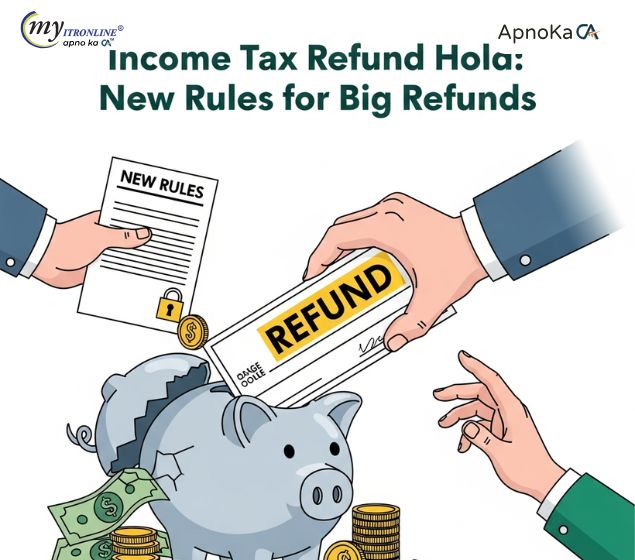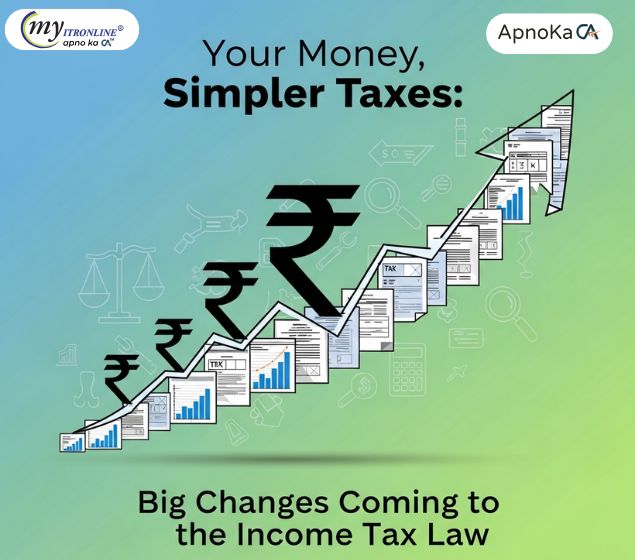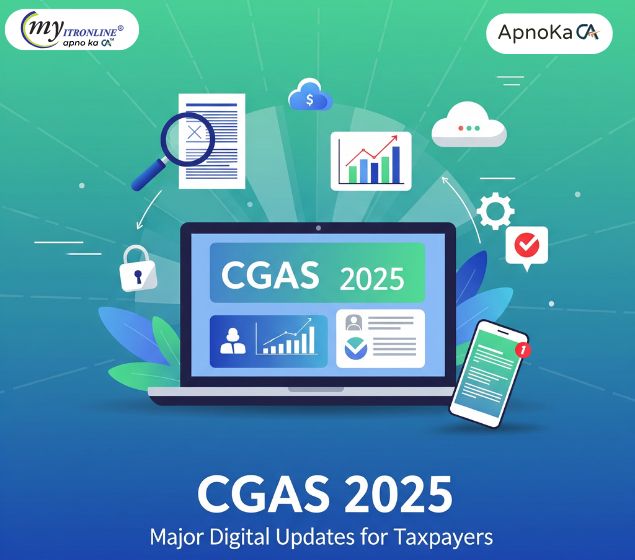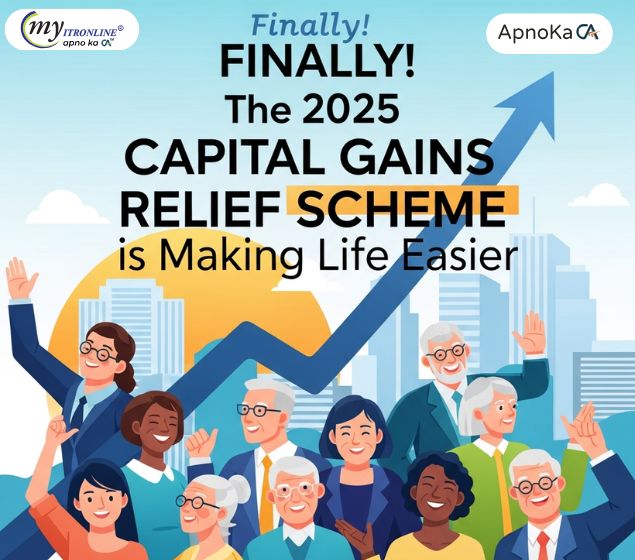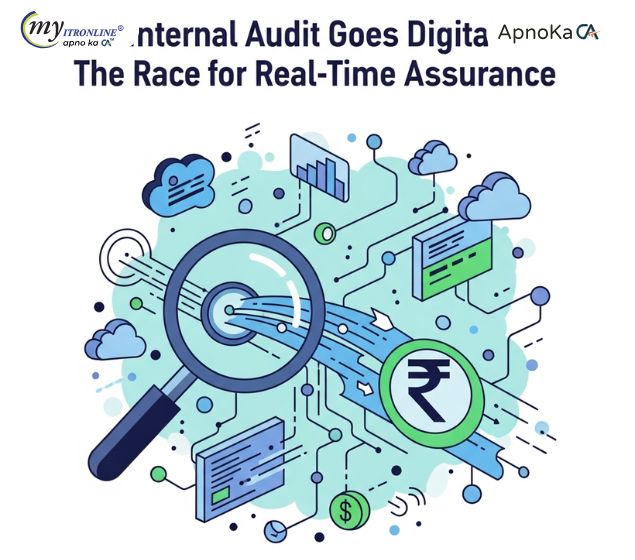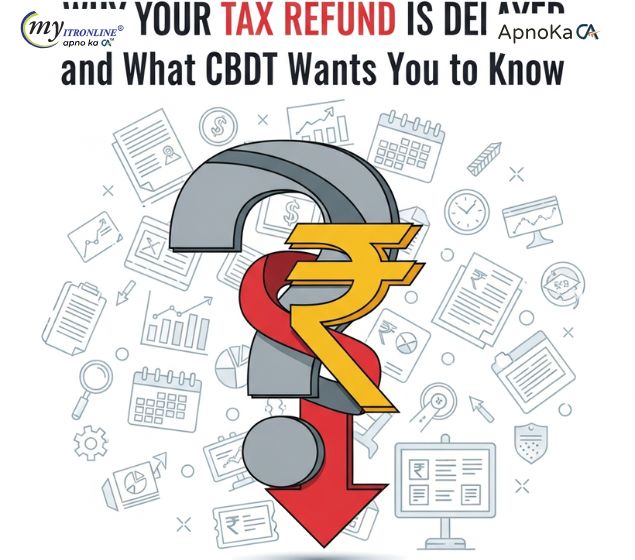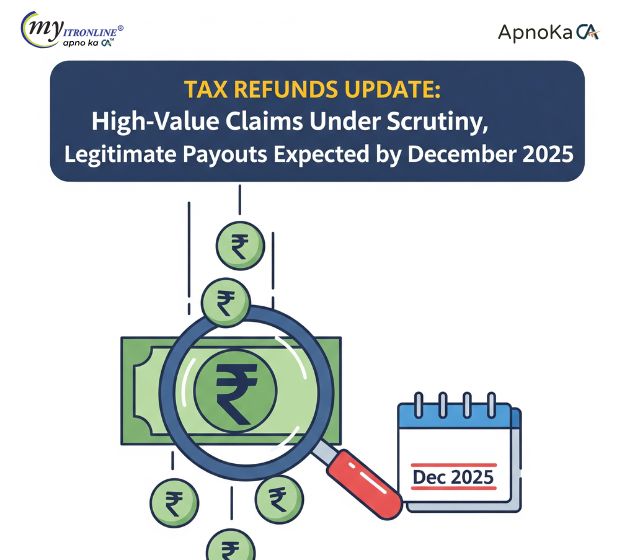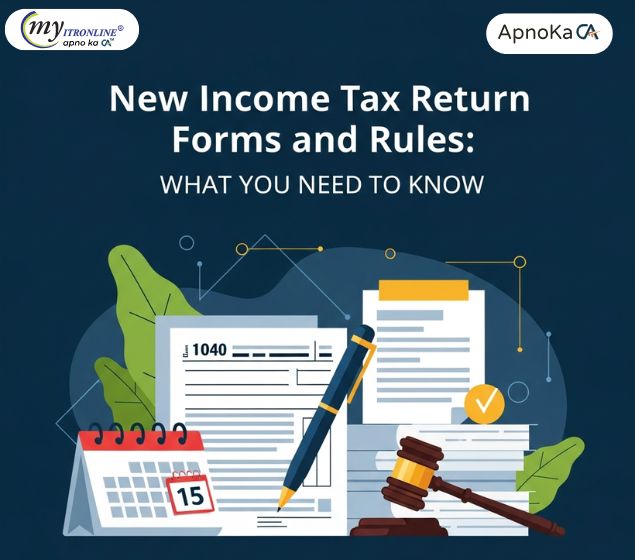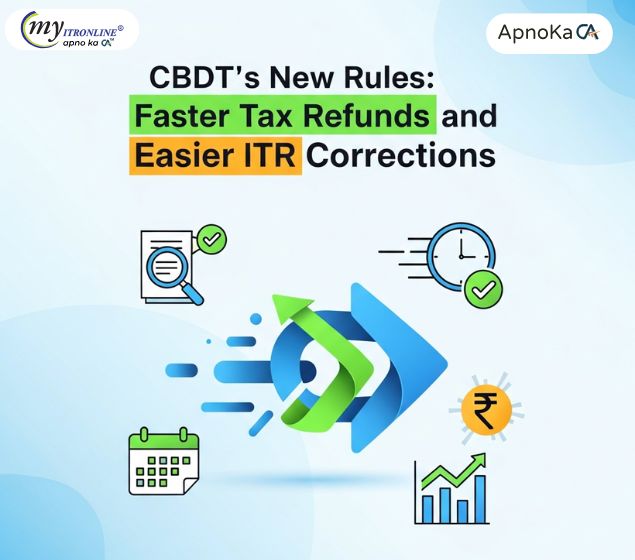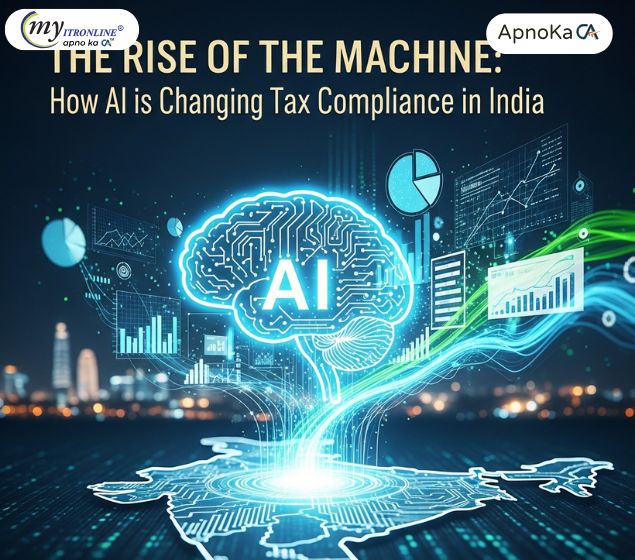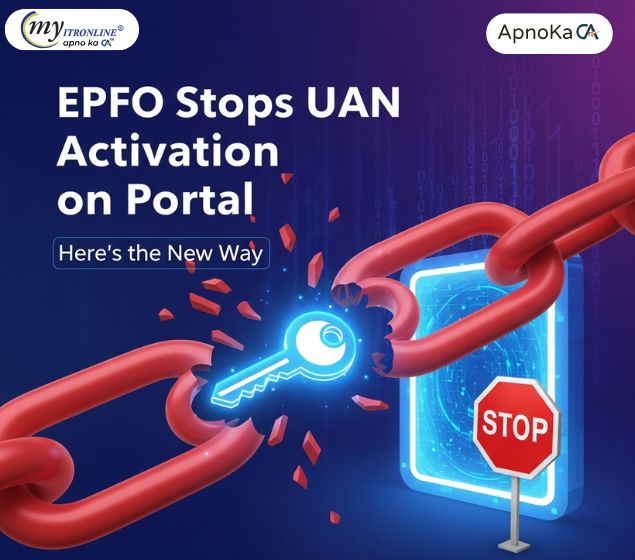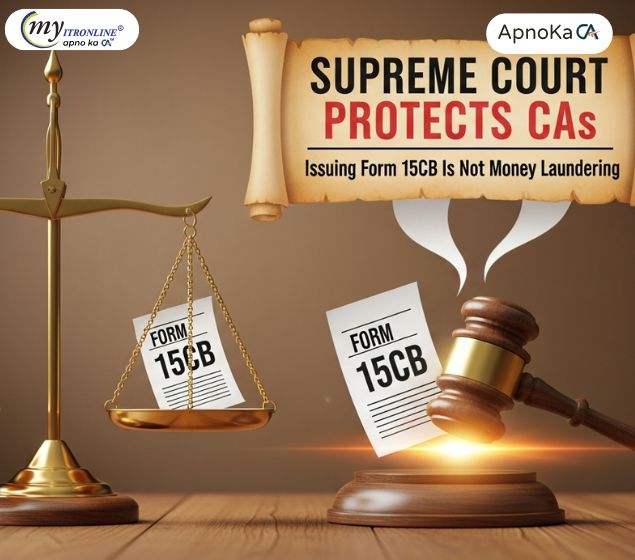Understanding the Finance Act 2024: Four Key Tax Changes Explained
This blog provides a detailed overview of four significant amendments to the Income Tax Act effective from Financial Year 2025-26. It covers the establishment of the new tax regime as the default option for taxpayers, the mandatory timely payments to MSMEs under the new Section 43B(h), the extension of tax benefits for startups, and the revised rules and thresholds for Tax Collected at Source (TCS) on foreign remittances and luxury goods.
.jpg )
As the new financial year begins, taxpayers in India should familiarize themselves with the latest changes to the Income Tax Act. The Finance Act, 2024, has introduced significant updates that will take effect in the Financial Year 2025-26 (Assessment Year 2026-27). These changes aim to simplify the tax process, improve compliance, and provide specific relief.
This blog explores four important amendments that individuals and businesses need to know to manage their tax planning effectively and ensure compliance in the upcoming year.
1. New Tax Regime Becomes the Default Option
In a significant procedural change, the new tax regime under Section 115BAC is now the default choice for individual taxpayers, HUFs, AOPs, and BOIs.
The Old System: Previously, taxpayers had to actively select the new, lower-tax-rate regime if they wanted to use it. The old system, which included various deductions and exemptions, was the default.
The New Amendment: Starting from the Financial Year 2024-25, the new tax regime will automatically apply to taxpayers. If you prefer to use the old regime and access deductions like those under Sections 80C and 80D, you must actively opt out of the new regime during your tax return filing. Taxpayers with business income can switch back to the old regime one time, while those without business income can make this choice each year.
Who is Impacted? This change affects all individual taxpayers, especially those who regularly rely on deductions under the old system. It requires a proactive decision during tax filing to avoid being taxed automatically under the new regime.
The Objective: The government wants to encourage the adoption of the simpler, exemption-free new tax regime. This approach seeks to streamline tax filing for more taxpayers and reduce disputes related to claimed deductions.
2. Mandatory Timely Payments to MSMEs under Section 43B(h)
An important amendment has been introduced to support the financial health of Micro, Small, and Medium Enterprises (MSMEs) by ensuring they receive timely payments.
The Old Rule: Before this amendment, businesses could claim deductions for payments owed to MSMEs on an accrual basis, even if the actual payment was late.
The New Amendment: The new Section 43B(h) requires any payment to a Micro or Small Enterprise to be made within the time limits set in the MSMED Act, 2006, to qualify for a tax deduction in the same financial year. The payment deadlines are:
- 15 days if there is no written agreement.
- 45 days if there is a written agreement.
If payments are not made within these deadlines, the deduction can only be claimed in the financial year when the payment is actually made. This provision is effective from the Assessment Year 2024-25.
Who is Impacted? This rule affects all businesses that procure goods or services from registered Micro and Small Enterprises. It promotes stricter payment practices and has major implications for working capital management and tax planning.
The Objective: This move aims to relieve the working capital issues faced by MSMEs due to delayed payments. By tying tax deductions to actual payment dates, the government encourages larger businesses to settle their debts promptly, strengthening the MSME ecosystem.
3. Extended Tax Benefits for Startups
To promote innovation and entrepreneurship, the government has extended a key tax incentive for startups.
The Old Rule: Eligible startups incorporated before April 1, 2024, could claim a 100% tax deduction on profits for three consecutive years within their first ten years of incorporation under Section 80-IAC of the Income Tax Act.
The New Amendment: The eligibility period for incorporation has been extended. Startups incorporated before April 1, 2030, can now benefit under Section 80-IAC. This gives newer businesses more time to take advantage of this financial relief.
Who is Impacted? This extension is a significant boost for new and emerging startups, giving them a longer period to benefit from tax exemptions during their critical early years.
The Objective: The government aims to support the startup ecosystem by providing financial stability during the initial years. This tax holiday encourages innovation, job creation, and wealth generation, further strengthening India's position as a global startup hub.
4. Adjustments in Tax Collected at Source (TCS) Rules
The rules for Tax Collected at Source (TCS) on certain foreign remittances and luxury purchases have been revised to ease the compliance burden.
The Old Rule: TCS at various rates applied to foreign remittances under the Liberalised Remittance Scheme (LRS) and on luxury goods sales, often with lower thresholds.
The New Amendment: Starting April 1, 2025, the threshold for TCS on overseas remittances under the LRS for purposes other than education and medical treatment has risen from ₹7 lakhs to ₹10 lakhs. Additionally, a 1% TCS will apply to sales of specified luxury goods if the amount exceeds ₹10 lakhs. This TCS is not an extra tax but can be claimed as a credit when filing income tax returns.
Who is Impacted? Individuals making foreign remittances for travel, investment, or personal reasons, as well as those buying high-value luxury items, will be affected by these changes. The increased threshold for remittances provides some relief.
The Objective: These changes aim to make the TCS rules simpler, reducing the burden for smaller transactions while still ensuring compliance for high-value purchases.
Conclusion
These four amendments represent a mix of procedural changes, compliance mandates, and specific reliefs. It is crucial for every taxpayer to review their financial plans and compliance strategies in light of these new rules. Understanding these changes will not only help you remain compliant but will also aid in making informed financial decisions in the year ahead. For tailored advice, consulting a tax professional is always wise.
FILING YOUR INCOME TAX RETURN F.Y 2024-25 (A.Y. 2025-2026) WITH MYITRONLINE
The income tax filing deadline is right around the corner. If you haven’t filed yet, do it today with Myitronline! Avoid last minute rush and file your tax return today on MYITRONLINE in Just 5 mins.(www.myitronline.com)
If you are looking for eCA assistance to file your income tax return/ GST, you can opt for MYITRONLINE eCA assisted plan starting
Upload Salary Individual Form-16
If you have any questions with filing your tax return, please reply to this mail. info@myitronline.com OR call 9971055886,8130309886.
Note-All the aforementioned information in the article is taken from authentic resources and has been published after moderation. Any change in the information other than fact must be believed as a human error. For queries mail us at marketing@myitronline.com
Krishna Gopal Varshney
An editor at apnokacaKrishna Gopal Varshney, Founder & CEO of Myitronline Global Services Private Limited at Delhi. A dedicated and tireless Expert Service Provider for the clients seeking tax filing assistance and all other essential requirements associated with Business/Professional establishment. Connect to us and let us give the Best Support to make you a Success. Visit our website for latest Business News and IT Updates.
Leave a reply
Your email address will not be published. Required fields are marked *Share this article
Krishna Gopal Varshney, Founder & CEO of Myitronline Global Services Private Limited at Delhi. A dedicated and tireless Expert Service Provider for the clients seeking tax filing assistance and all other essential requirements associated with Business/Professional establishment. Connect to us and let us give the Best Support to make you a Success. Visit our website for latest Business News and IT Updates.
View articles








